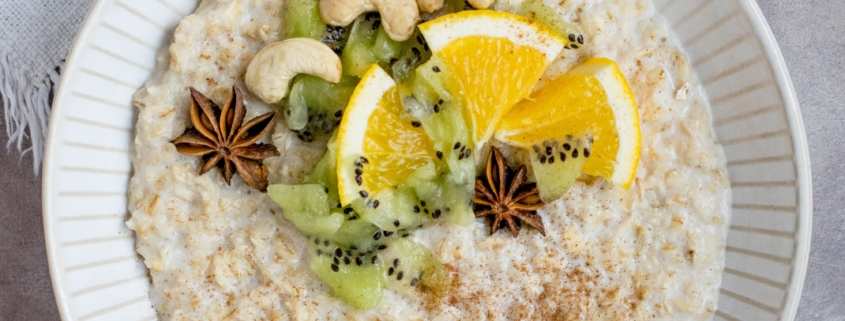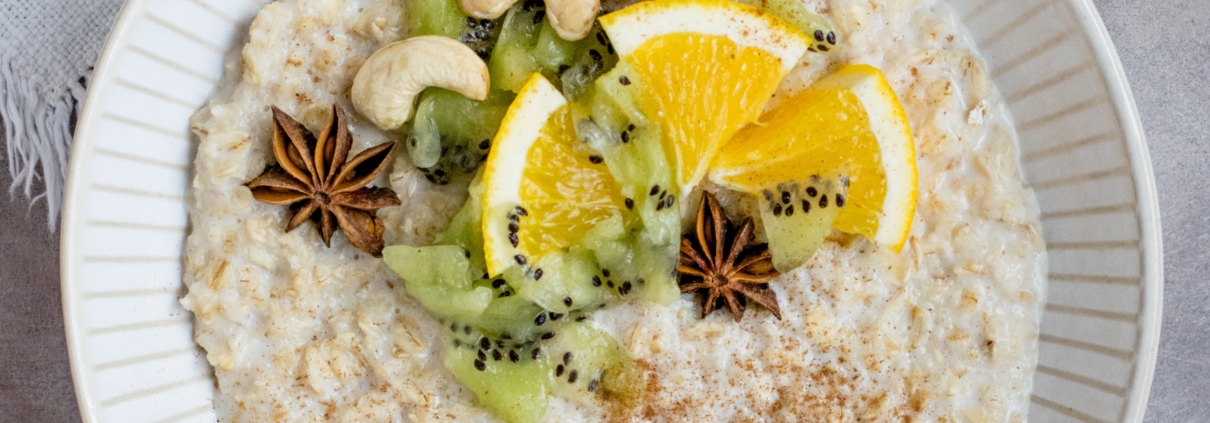Oats and Why We No Longer Recommend Them for Breakfast

In recent years, oats have gained popularity as a nutritious and convenient breakfast option. However, there’s a hidden side to this seemingly innocent grain that has prompted me to rethink my breakfast choices. From concerns about pesticide residues to their impact on blood sugar levels, the story of oats is more complex than meets the eye. In this article, we’ll delve into the facts about oats, their potential health risks, and why I’ve shifted away from them as my morning meal of choice.
The Pesticide Concern: For many, oats represent a wholesome and healthy start to the day. However, a concerning reality lurks beneath the surface. The pesticide glyphosate, often associated with the popular herbicide Roundup, has been a recurring issue with oat-based products. Over the years, alarming levels of glyphosate have been detected in these products, raising serious health concerns. The good news is that recent tests have shown a decrease in the average levels of glyphosate in cereals and oat-based foods. Despite this improvement, it’s essential to remain vigilant, as traces of this toxic chemical still persist in some popular brands.
Health Implications of Glyphosate: Glyphosate has been linked to a range of severe health problems, including potential carcinogenic effects and disruptions to the endocrine system. While the decreased levels are a step in the right direction, the lingering presence of glyphosate in certain oat products underscores the importance of choosing our breakfast options carefully. Given the potential health risks associated with glyphosate exposure, it’s essential to stay informed about the products we consume regularly.
The Blood Sugar Connection: Apart from the pesticide concern, I’ve personally chosen to avoid oats for breakfast due to their impact on blood sugar levels. Oats are often considered a high-carbohydrate food, which can lead to rapid spikes and subsequent crashes in blood sugar levels. For individuals looking to maintain steady energy throughout the morning, these fluctuations can be counterproductive. This is especially true for those with conditions like diabetes or insulin resistance.
If you’ve decided to steer clear of oats for breakfast due to concerns about pesticides or blood sugar, there’s a world of delicious and nutritious alternatives waiting to grace your morning table. Here are a few options that offer both variety and health benefits:
- Greek Yogurt with Berries and Nuts: Greek yogurt is a protein-packed breakfast option that provides a creamy and satisfying base. Top it with a variety of fresh or frozen berries for antioxidants and vitamins. Add a sprinkle of chopped nuts like almonds, walnuts, or pistachios for a satisfying crunch and healthy fats.
- Eggs Any Way You Like: Eggs are an excellent source of high-quality protein and essential nutrients. Whether you prefer scrambled, poached, boiled, or in an omelette, eggs can be customized to suit your taste. Pair them with sautéed vegetables or a slice of whole-grain toast for a well-rounded meal.
- Chia Seed Pudding: Chia seeds are a nutritional powerhouse, rich in fiber, omega-3 fatty acids, and antioxidants. Mix chia seeds with your choice of milk (dairy or plant-based) and let them soak overnight to create a delightful pudding. Top with fruits, nuts, and a drizzle of honey for added flavor.
- Smoothie Bowl: Blend together a combination of your favourite fruits (20%), vegetables (60-80%), protein powder, and a liquid base (such as almond milk or coconut water) to create a vibrant and nutrient-packed smoothie bowl. Top with seeds, and a dollop of nut butter for a satisfying crunch.
- Avocado Toast: Avocado toast is a trendy and nourishing option that’s quick to prepare. Spread ripe avocado on whole-grain toast and enhance the flavor with toppings like sliced tomatoes, a sprinkle of feta cheese, red pepper flakes, and a drizzle of olive oil.
- Quinoa Breakfast Bowl: Quinoa is a versatile grain that can be used in both sweet and savory dishes. Cook quinoa and top it with diced fruits, nuts, seeds, and a splash of yogurt or milk for a balanced and protein-rich breakfast bowl.
- Cottage Cheese Parfait: Cottage cheese is a great source of protein and calcium. Layer it with fresh fruits, a touch of honey, and a sprinkle of granola to create a satisfying and visually appealing parfait.
- Homemade Granola with Milk: Create your own granola using a mix of organic steel cut oats, nuts, seeds, and dried fruits. Bake it to your desired level of crunchiness and enjoy it with your choice of milk or yogurt.
- Nut Butter Banana Sandwich: Spread natural nut butter (like almond or peanut butter) between slices of whole-grain bread, and add banana slices for a sweet and substantial breakfast sandwich.
- Savory Breakfast Burrito: Wrap scrambled eggs, black beans, sautéed vegetables, and a sprinkle of cheese in a whole-grain tortilla for a satisfying and savory breakfast option.
By exploring these alternatives, you can find breakfast options that align with your health goals and dietary preferences while keeping your mornings exciting and nourishing. Remember, variety is key to maintaining a balanced diet and enjoying your morning meal to the fullest.
Embracing Steel-Cut Oats: If you’re still drawn to the idea of oats but share my concerns about blood sugar levels, consider making the switch to steel-cut oats. Unlike instant oats, steel-cut oats undergo minimal processing. This means that they have a lower glycemic index and a slower impact on blood sugar. Additionally, steel-cut oats retain more of their natural texture and flavor, making for a heartier and more satisfying breakfast option.
Benefits of Steel-Cut Oats:
- Stable Blood Sugar: As mentioned earlier, steel-cut oats have a lower glycemic index, leading to more stable blood sugar levels and sustained energy throughout the morning.
- Rich in Nutrients: Steel-cut oats retain more of their nutrient content due to their minimal processing. They are a good source of dietary fiber, essential vitamins, and minerals like iron and magnesium.
- Digestive Health: The high fiber content in steel-cut oats supports healthy digestion and can help prevent constipation.
- Satiety: Due to their chewy texture and slower digestion, steel-cut oats are more filling and can keep you satisfied for longer, potentially reducing overeating later in the day.
Conclusion: While oats have long been hailed as a nutritious breakfast choice, it’s crucial to consider the full picture before making them a regular part of your morning routine. The decrease in glyphosate levels is a positive development, but the potential health risks associated with these pesticides remain a concern. Moreover, if you’re wary of blood sugar spikes, opting for oatmeal alternatives or steel-cut oats can provide a more balanced and nutrient-rich breakfast option. Ultimately, making informed choices about our breakfast can set the tone for a healthier day ahead.


